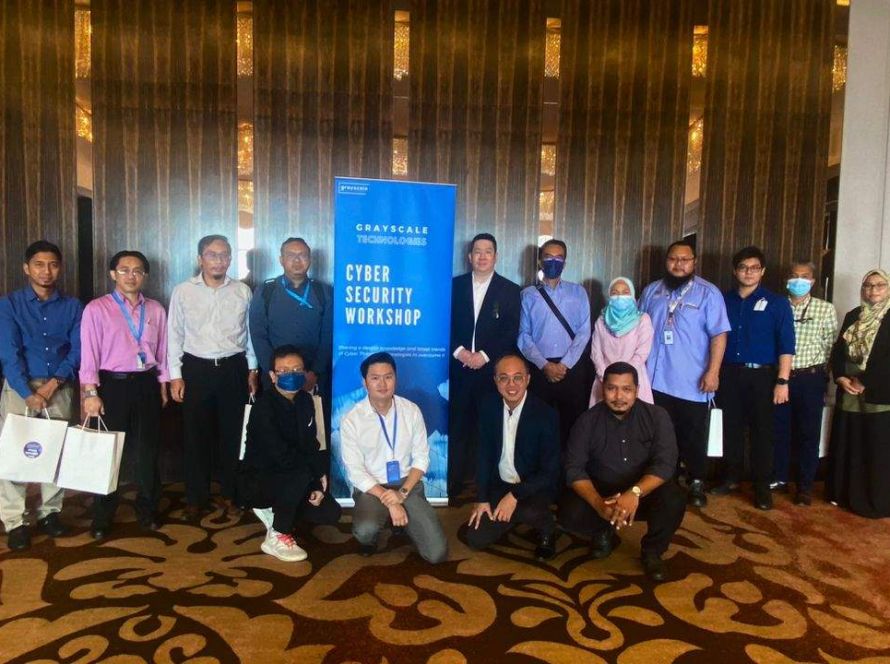Are you tired of the traditional course enrollment and grading systems that are prone to errors and inefficiencies?
Well, there’s a solution that can revolutionise these processes: smart contracts.
Smart contracts are self-executing contracts with the terms of the agreement directly written into the code. They can automate and streamline various course enrollment and grading aspects, making the entire process more secure and transparent.
Join us as we delve into the exciting world of smart contracts and their potential impact on education.
We will explore the key features and functionalities of smart contracts, as well as the challenges and considerations that institutions need to address when adopting this technology in this article.
Challenges in Traditional Course Enrollment and Grading Systems in Malaysia
Limitations in Evaluation Methods
Typically, evaluation methods are rigid, making it difficult for educators to customise exams according to the diverse needs of students.
This limitation1 often leads to a lack of flexibility in how educators assess students’ understanding, causing potential mismatches between students’ abilities and exam requirements.
Additionally, the grading system has its own set of challenges. The traditional grading system is subject to bias and inconsistencies due to human errors.
There is also a lack of transparency, which may lead students to question the fairness of the grading system.
Manual Administrative Work
Manual administrative work2 involves a vast amount of paperwork and data entry, which is time-consuming and prone to human errors.
These errors can lead to inaccuracies in student data, affecting the fairness and integrity of course enrollments and grading systems.
Moreover, manual administrative work can also lead to inefficiencies in the way student records are managed and stored.
What are Smart Contracts?
Smart contracts3 are contracts that are written directly into lines of code and are self-executing. They are stored on the blockchain, which is a decentralised ledger that records all transactions across multiple computers.
They render transactions traceable, transparent, and irreversible, making them a key player in blockchain technology.
In the context of course enrollment and grading systems in Malaysia, smart contracts could revolutionise the way these processes are handled.
For example, once students pay their tuition fee, a smart contract could automatically enrol them in their chosen courses.
The contract could include ‘if/when/then’ statements such as “IF the tuition fee is paid in full WHEN the payment is confirmed, THEN enrol the student in the chosen courses”.

How Can Smart Contracts Streamline Course Enrollment and Grading Systems in Malaysia?
Automation of Student Records Management
By its nature, blockchain is a distributed ledger where each block contains a timestamp and a link to a previous block.
In terms of student records, this could mean that each student’s academic progress4 is recorded on a block, which is then linked to the previous block, creating a chain of academic history that is virtually tamper-proof.
Furthermore, since the records are stored on a blockchain, they can be accessed from anywhere, anytime, providing convenience that traditional systems cannot match.
Improved Data Security and Transparency
Student data is sensitive and contains personal information that needs to be protected. Blockchain technology, particularly permissioned blockchains, can help in this regard.
A permissioned blockchain is a private network with controlled access, and only authorised individuals or entities can join. This helps to maintain privacy while also safeguarding sensitive information.
Converting data into a code prevents unauthorised access to the information.
Accurate and Secure Grading System
A smart contract could handle grading systems where “IF a student submits their assignments on time and meets the grading criteria, THEN they receive a certain grade”.
This automated, objective system could eliminate human error and bias, providing a fair and efficient method for grading. Furthermore, because smart contracts are self-executing, they could help reduce administrative workloads and streamline educational processes.
Predefined passing criteria can be coded into the smart contract. For instance, a student would automatically be awarded a certification once they meet the required grade, reducing human error and bias.
The process would be automated, efficient, and accurate, providing real-time updates on the student’s certification status.
In addition, the use of Non-Fungible Tokens (NFTs) can also be incorporated into this system. Upon completing a course, an NFT can be minted as a unique, tamper-proof record.
This digital asset represents proof of course completion and can be transferred to the student’s digital wallet. This prevents any possibility of fraud or misrepresentation of academic achievements.
Automated Payment Processing for Tuition Fees
For instance, once a student has enrolled in a course, the smart contract automatically triggers the payment process. It could also be programmed to release grades only after the tuition fees have been paid.
The use of smart contracts for tuition fee payment comes with several benefits.
Firstly, it would significantly lower administrative costs. Since the process would be automated and self-executing, institutions would no longer need staff to manage and process tuition fee payments. This would not only lower operational costs but also increase efficiency.
Secondly, it could lead to lower tuition rates. The money saved from reduced administrative expenses could be passed on to students through lower tuition fees.
The transparency and security blockchain technology provides would protect the institution and students. It would ensure that payments are secure, traceable, and cannot be tampered with. This would build trust between the educational institution and the students, enhancing their overall experience.
Moreover, this approach could also be used for other financial aspects of educational institutions, such as scholarships and grants. Smart contracts could automatically allocate funds to eligible students based on predefined criteria, eliminating the need for manual verification and disbursement.
This would make the process more fair, transparent, and less susceptible to corruption or bias.
Course Retake and Refunds
If students wish to retake a course, they can request it via the smart contract by applying with the necessary details. The contract, programmed with the rules and conditions for retakes, assesses the request.
The contract triggers the retake process without manual intervention if the conditions are met. This eliminates the risk of subjective judgement, reduces processing time, and ensures all students are treated equally according to preset rules.
Regarding refunds, the smart contract system offers a similarly secure process. The refund rules are coded into the smart contract, which calculates the refundable amount based on factors such as the withdrawal time, whether the course has started, and other predefined conditions.
Once the refundable amount is calculated, the smart contract initiates the funds transfer to the student’s wallet. This automated refund process reduces administrative work, speeds up the refund process, and ensures that the calculation of refundable amounts is consistent and transparent.
It also eliminates potential disputes as the smart contract executes the refund based on the coded rules, which all students agree to at the time of enrollment.
Ease Of Certification Authenticity
Currently, verifying the authenticity of educational certifications can be a time-consuming and complex process. Institutions often need to contact the issuing institution to confirm the certification’s validity (such as if it’s MQA-validated), which can lead to delays and inefficiencies.
Inaccurate or fraudulent certifications can also go undetected, undermining the integrity of the educational system.
By using blockchain technology5, verifying educational certifications can be streamlined and more transparent. Each certificate can be recorded as a transaction on the blockchain, which ensures its authenticity and prevents tampering.
Since the blockchain is a decentralised system, anyone can verify the certificate without needing to contact the issuing institution directly.
However, it is important to note that implementing such technology would require considerable infrastructure and regulatory changes.
Let Us Assist You With Improving Transparency on Your Educational Credentials
At Grayscale, we are committed to helping educational institutions and certification organisations improve transparency regarding their academic credentials.
Our blockchain-based solutions allow for secure and transparent storage of certificates and efficient verification of credentials.
Contact us today at enquiries@grayscale.my to learn more about how we can help you leverage blockchain technology for education verification.
References
1 MOKHTAR, A. (2019, September 15). Grading system limits our children’s mindset. New Straits Times. Retrieved August 25, 2023, from https://www.nst.com.my/opinion/columnists/2019/09/521690/grading-system-limits-our-childrens-mindset
2 Hean, T. K., Kannan, S., & Piaw, C. Y. (2018, July 25). The Effect of School Bureaucracy on the Relationship between Principals’ Leadership Practices and Teacher Commitment in Malaysia Secondary Schools. Malaysian Online Journal of Educational Sciences, 5(1), 37 – 55. University of Malaya. https://ejournal.um.edu.my/index.php/MOJES/article/view/12634
3 IBM. (n.d.). What are smart contracts on blockchain? IBM. Retrieved August 25, 2023, from https://www.ibm.com/topics/smart-contracts
4 Raj, N. (2023, March 15). Blockchain And Education: The Future. eLearning Industry. Retrieved August 25, 2023, from https://elearningindustry.com/the-future-of-blockchain-technology-in-education
5 Pathak, S., Gupta, V., Malsa, N., Ghosh, A., & Shaw, R.N. (2022, August 31). Smart Contract for Academic Certificate Verification Using Ethereum. Advanced Computing and Intelligent Technologies, 914. Link Springer. https://doi.org/10.1007/978-981-19-2980-9_29





3 Comments
fitspresso reviews
For days now I’ve been glued to this gem of a site. The owner works tirelessly to engage fans with quality content. I’m mega impressed and can’t wait to see what they wow me with next!
Fitspresso Reviews
Somebody essentially help to make significantly articles Id state This is the first time I frequented your web page and up to now I surprised with the research you made to make this actual post incredible Fantastic job
binance Registrēties
Thanks for sharing. I read many of your blog posts, cool, your blog is very good.